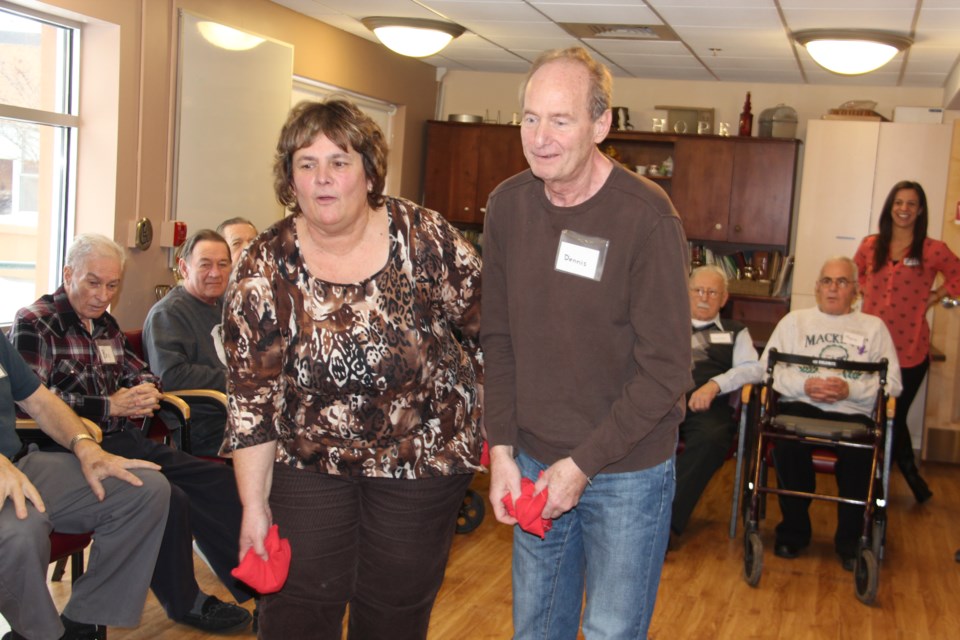Before Dennis Serafini passed away three years ago at the age of 60, he spent a lot of time at Alzheimer Society's adult day program here in Sudbury.
There he took part in recreation activities with others living with the disease, and his wife and caregiver, Debbie, was able to get some respite. She can't say enough good things about the program.
“They treated him as an individual, that he was important,” said Debbie. “They brought joy to his life and to my life, so I'm still very involved, because I've met a lot of friends.”
Debbie took part in a panel of those with “lived experience” of the disease Jan. 27 as part of the Alzheimer Society Sudbury-Manitoulin North Bay and Districts Circle of Hope conference.
She said she wants to raise awareness that Alzheimer's Disease and dementia aren't only diseases very elderly people get. Her husband was diagnosed at 54 when she began noticing a number of “red flags.”
His job performance suffered — he was a manager at a grocery store — he was constantly exhausted and he had difficulty with things he used to be good at, such as driving and playing cards.
She encourages anyone who thinks they or their loved ones may have Alzheimer's to contact their doctor or the Alzheimer Society to get tested. If the disease is caught early enough, there are medications to slow its progress.
Debbie said she'd like to see more government resources dedicated to the disease. She has kids in their 30s, and would like to think there would be better medications and services available to them if, heaven forbid, they were to get Alzheimer's like their dad.
“The services at the Alzheimer Society here are wonderful, but you know they're going to be stretched to their limits,” she said. “If more and more people [develop] the disease, their programs need to be enhanced and extended.”
The Circle of Hope was put on by the Alzheimer Society is recognition of Alzheimer Awareness Month, which is marked every January.
Besides the panel Serafini participated in, the conference also featured several guest speakers, including experts on how dementia affects issues such as intimacy, depression and grief.
The conference was open to the general public, including those with Alzheimer's and their caregivers and health-care workers.
“We're hoping today they can walk away having learned something about Alzheimer's disease or dementia,” said Jessica Bertuzzi-Gallo, public relations co-ordinator with Alzheimer Society of Sudbury-Manitoulin North Bay and Districts.
Madeleine Sauvé, a behavioural support facilitator with Behavioural Supports Ontario, gave a talk on what she calls “ambiguous grief,” or grief for someone who's still alive physically, but whose personality and abilities have changed due to a condition such as Alzheimer's.
“What happens is often they don't recognize it's grief, and they feel like something's wrong with them,” she said.
“Anger and frustration and sadness is all part of the grief. They sort of feel relieved to know there's nothing wrong with them. It's helpful to normalize what they're going through.”
You can learn more about the services provided locally by the Alzheimer Society on its website.
